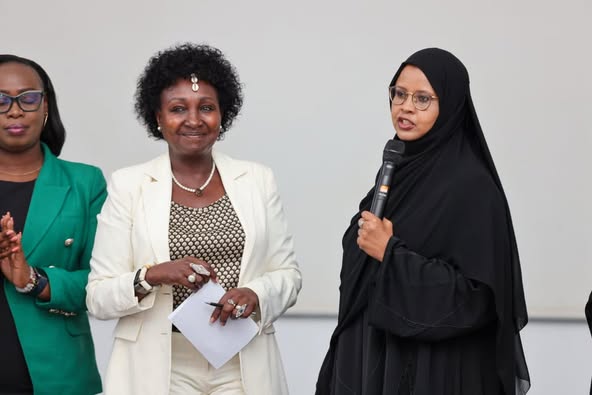The Kenya Women Parliamentary Association (KEWOPA) is a membership organization comprising all women parliamentarians from various political parties, both elected and nominated, in the Senate and National Assembly.
KEWOPA is dedicated to funding programs that promote food security and women’s empowerment. One of its initiatives, the Mama Kitchen Gardens, led by First Lady Rachel Ruto, teaches women across the nation how to grow their food, enhance nutrition at home, and generate income from surplus produce.
KEWOPA Chairperson Hon. Leah Sankaire, the Women Representative for Kajiado, highlighted the importance of community networks in advancing this initiative. With strong local connections, KEWOPA aims to lead the effort in encouraging more households to adopt kitchen gardens as a sustainable solution to food insecurity.
Organized by the State Department for Livestock Development, the initiative is expanding across the country. Over 20 female MPs have renewed their support, along with Principal Secretary Dr. Rono Kipronoh. KEWOPA remains committed to advocating for policies and programs that foster lasting change in society.
Challenges in achieving food security
Kenya faces significant challenges in achieving food security, with a large portion of the population experiencing food insecurity, particularly in rural and arid/semi-arid regions. This situation is exacerbated by factors such as climate change, poverty, and inefficient food systems.
As of early 2025, about 2.2 million people are experiencing high levels of acute food insecurity, with 266,000 classified in IPC Phase 4 (Emergency). The food security situation is expected to worsen in the coming months, with an increase in the number of people facing acute food insecurity. Pastoral areas in Turkana, Marsabit, and Garissa counties are anticipated to experience crisis conditions due to below-average short rains. Between October 2024 and May 2025, it is estimated that 2.5 to 2.99 million people will require humanitarian assistance.
Key Challenges:
High Food Insecurity: Approximately 32% of Kenyans live below the food poverty line, with the highest rates found in rural areas.
Malnutrition: Malnutrition is a serious concern, particularly among children, with high rates of stunting (impaired development due to malnutrition), especially in rural communities.
Climate Change: Irregular rainfall, droughts, and floods adversely affect agricultural production, leading to food shortages and rising prices.
Underperforming Food Systems: Inadequate infrastructure, limited access to finance for smallholder farmers, and post-harvest losses all contribute to food insecurity.
Population Growth: The rapid population growth in Kenya strains limited resources, including land, water, and food.
Arid and Semi-Arid Lands (ASALs): Much of Kenya consists of arid and semi-arid land, making agriculture highly dependent on unpredictable rainfall, which worsens food insecurity in these areas.
Refugee Crisis: Kenya hosts a large number of refugees, many of whom are located in food-insecure regions, adding to the strain on resources.
Gender Inequality: Households headed by women are more likely to face food insecurity compared to those headed by men.
Interventions and Policies:
Food and Nutrition Security Policy (FNSP): This policy serves as a comprehensive framework for enhancing food security and nutrition in Kenya.
Strategic actions to tackle malnutrition in the country
Strategic Grain Reserve: The government is working to establish a strategic grain reserve to address potential food shortages.
Agricultural Extension Services: Providing farmers with access to information and resources is essential for improving agricultural practices.
Addressing Climate Change: Investing in climate-resilient agriculture and water management is crucial for ensuring long-term food security.
Improving Infrastructure: Enhancing roads and storage facilities will help reduce post-harvest losses and improve market access.
Financial Inclusion: Ensuring that smallholder farmers have access to credit and other financial services can empower them to invest in their farms.
Addressing Gender Inequality: Empowering women and addressing gender disparities are vital for enhancing food security.
WFP Initiatives: The World Food Programme is engaged in long-term initiatives that aim to tackle the root causes of hunger and build community resilience.
Additionally, the “Mama Kitchen Garden Initiative” led by First Lady Rachel Ruto aims to establish two million kitchen gardens across one million households and schools, contributing to improved food and nutrition security.
